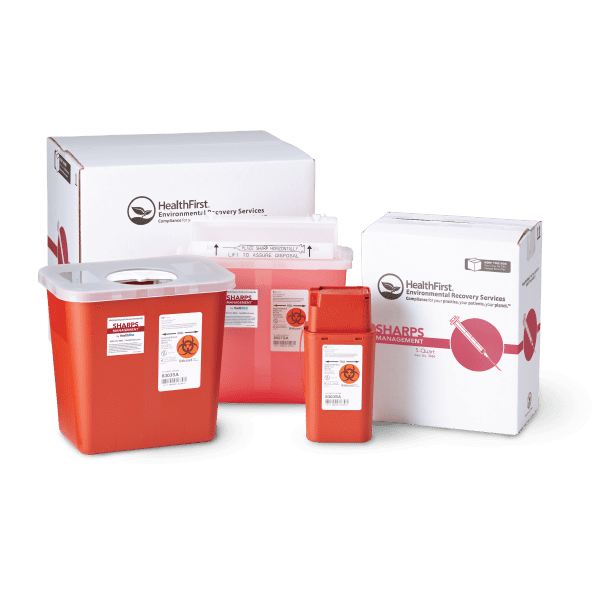The Relevance of Appropriate Waste Disposal Practices
The monitoring of waste is a vital facet of ecological stewardship that often goes undetected in our lives. Correct garbage disposal methods are not simply an issue of convenience but are important for guarding our ecological communities and public health. From the effects of inappropriate waste disposal on our setting to the long-term effects for future generations, the relevance of taking on lasting waste administration practices can not be overstated. By checking out the environmental influence of irresponsible waste disposal, the advantages of reusing efforts, and the importance of neighborhood interaction in waste reduction initiatives, a deeper understanding of why correct waste disposal practices are critical arises.
Ecological Influence of Improper Disposal
Improper disposal of waste positions a considerable hazard to the setting due to its harmful effects on ecological communities and human health. When waste is not correctly handled, it can cause contamination of the air, soil, and water, causing harm to various plant and animal species. click here. Chemicals and contaminants from poorly disposed waste can seep into the ground, contaminating groundwater resources and impacting the health and wellness of both wild animals and human beings
Furthermore, the buildup of waste in garbage dumps generates greenhouse gases like methane, adding to climate change and global warming. Improper disposal practices additionally lead to littering, which not just breaks down the visual worth of the atmosphere however can likewise hurt wild animals through ingestion or complication.
To alleviate these ecological effects, it is critical for people and areas to take on proper garbage disposal techniques such as reusing, composting, and accountable contaminated materials disposal. By taking these steps, we can help protect communities, preserve all-natural sources, and protect human health for future and existing generations.
Advantages of Recycling Programs
Consistently taking part in reusing programs uses numerous benefits for both the environment and culture as a whole. This preservation of resources not just assists in keeping eco-friendly balance yet also adds to sustainable advancement.
Moreover, recycling plays an essential role in lowering energy intake and greenhouse gas emissions. The production of items from recycled materials usually needs less energy contrasted to making from virgin resources - medical waste removal near me. Therefore, the carbon impact connected with the manufacturing process is considerably decreased, helping in the battle versus environment change
Additionally, recycling programs produce work possibilities in the recycling market, advertising economic growth and social welfare. By encouraging the recycling and reuse of materials, these programs support a circular economic situation that lessens waste generation and makes best use of resource effectiveness, inevitably leading to a cleaner, greener future for generations to come.
Hazardous Waste Monitoring Guidelines
Carrying out efficient contaminated materials administration guidelines is important for reducing environmental and wellness risks related to the improper disposal of harmful materials - click here. Appropriate handling, treatment, and disposal of harmful waste are necessary to stop contamination of dirt, water resources, and air
One secret standard appertains labeling of contaminated materials containers to make certain secure handling and transport. In addition, centers have to follow rigorous storage space demands to avoid leakages, spills, or accidents that can endanger human wellness and the setting. Normal training programs for workers on contaminated materials administration techniques are also essential to make certain conformity with guidelines and promote a culture of safety.
Additionally, contaminated materials should be set apart based on its buildings to stop chemical responses that might result in dangerous scenarios. Carrying out an extensive waste tracking system can aid keep track of the movement of unsafe products from generation to disposal, making sure transparency and liability. By following these standards carefully, companies and industries can add to a safer and cleaner environment for existing and future generations.
Neighborhood Involvement in Waste Decrease
To efficiently attend to the ecological and health and wellness risks connected with contaminated materials administration, engaging the area in waste reduction efforts is critical. Neighborhood participation plays a critical function in promoting lasting waste management methods and cultivating a culture of environmental duty. By informing citizens concerning proper waste partition, reusing, and composting techniques, communities can dramatically decrease the amount of waste sent out to landfills, thereby reducing ecological air pollution and conserving natural deposits.
Neighborhood engagement in important link waste reduction programs likewise assists in elevating awareness about the significance of waste reduction and urges people to take on environment-friendly behaviors in their day-to-days live - medical waste disposal. Collaborative efforts between regional authorities, waste administration business, and neighborhood participants can cause the execution of reliable waste decrease approaches customized to the details demands of each area or community
In addition, community engagement fosters a sense of possession and liability amongst citizens, equipping them to take aggressive actions in the direction of lowering waste generation and advertising a cleaner, healthier environment for current and future generations. By functioning together in the direction of usual waste decrease goals, communities can make a significant influence on minimizing the negative impacts of improper waste disposal methods.

Future of Sustainable Waste Practices
The advancement of sustainable waste methods is essential for progressing ecological stewardship and resource preservation in the coming years. As the international population remains to grow, so does the amount of waste created (medical waste removal service). Standard waste disposal methods, such as landfilling and incineration, are no more lasting in the long-term as a result of their substantial environmental effects. Moving on, the future of lasting waste methods hinges on embracing a circular economic situation method, where resources are recycled, reused, or repurposed to decrease waste generation.
Technological advancements play a crucial function fit the future of lasting waste methods. Advanced waste sorting and recycling modern technologies can assist improve the efficiency of waste management processes, permitting the recuperation of valuable resources from waste streams. Furthermore, the adoption of eco-friendly materials and composting methods can help in reducing the quantity of natural waste winding up in land fills, consequently mitigating greenhouse gas exhausts.
Furthermore, promoting customer understanding and education and learning on proper waste partition and disposal practices is crucial for driving behavioral modification in the direction of sustainability. By fostering a culture of waste recycling, reuse, and reduction, neighborhoods can collectively add to a cleaner and healthier setting for future generations.

Final Thought
To conclude, appropriate waste disposal practices are crucial for decreasing environmental influence and advertising sustainability. By carrying out recycling programs, taking care of harmful waste properly, and encouraging area involvement in waste reduction efforts, we can function in the direction of a cleaner and much healthier atmosphere. It is essential for businesses, governments, and individuals to prioritize lasting waste techniques for the future health of our world.

From the consequences of inappropriate waste disposal on our environment to the long-term effects for future generations, the significance of taking on lasting waste administration techniques can not be overstated. By discovering the ecological impact of irresponsible waste disposal, the benefits of reusing initiatives, and the importance of community interaction in waste reduction initiatives, a much deeper understanding of why correct waste disposal techniques are critical emerges.
By educating locals regarding correct waste partition, reusing, and composting methods, communities can significantly lower the amount of waste sent to land fills, consequently reducing environmental air pollution and saving natural sources. (click here)
Moving ahead, the future of lasting waste techniques exists in welcoming a round economic situation approach, where sources are recycled, reused, or repurposed to decrease waste generation.
Advanced waste sorting and reusing modern technologies can aid boost the performance of waste monitoring procedures, permitting for the recuperation of valuable sources from waste streams.